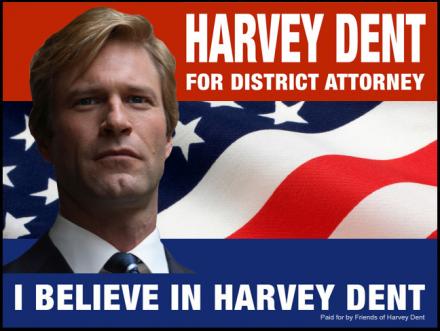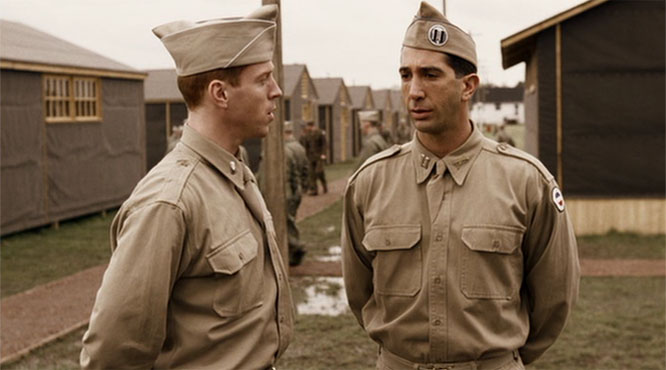Perhaps it is because I fancy myself a musician, but I generally focus on the music over the lyrics in rock songs. Let’s face it, as a general proposition, notwithstanding Bob Dylan, you are not going to find brilliant lyric writing in rock and roll. But even when you do have amazing lyrics, if the tune does not catch my attention, then I am generally not that interested (see Leonard Cohen). On the other hand, a great melody or rock and roll energy can mask the most asinine lyrics (see Dave Matthews and Kiss). Excuse the length of the entries this time around, but several of these demanded extended discussion.
70. Randy Newman – Land of Dreams, 1988Often overlooked in his catalogue, this little gem will really get under your skin if you give it the chance. Newman puts aside his trademark quirky compositional style, and delivers a set of fairly straightforward rock songs. Part of the credit goes to co-producer and guest guitarist Mark Knopfler (best showcased on the cynical single, “It’s Money That Matters,” one of those classic Newman tunes where you are not really sure on which side of the issue he really stands). Check out the autobiographical opening trilogy of “Dixie Flyer,” “New Orleans Wins the War” and “Four Eyes”. “Dixie Flyer” is a lovely song, detailing a young boy’s arrival to the Big Easy over a smooth rolling piano line which invokes the lazy currents of the Mississippi River flowing by the French Quarter. “New Orleans Wins the War” wonderfully captures the spirit and culture unique to New Orleans, including the residents’ obliviousness to outside concerns or dangers (sometimes to their detriment, as Hurricane Katrina demonstrated). It is full of vivid detail about life and attitudes in New Orleans:
“Don’t remember much about my baby days, but I been told
We used to live on Willow in the Garden District, next to the Sugar Bowl
Momma used to wheel me past an ice cream wagon
One side for White, one side for Colored
I remember trash cans floatin’ down Canal Street, it rained every day one summer
Momma used to take me to Audubon Park, show me the ways of the world
She said, ‘here comes a white boy, there goes a black one, that one’s an octoroon
This little cookie here’s a macaroon, that big thing’s a red balloon
And the paper down here’s called the Picayune
And here’s a New Orleans tune’…
Daddy said, ‘I’m gonna get this boy out of this place
Bound to sap his strength
People have fun here, and I think that they should
But nobody from here ever come to no good
They’re gonna pickle him in brandy, and tell him he’s saved
Then throw fireworks all ‘round his grave’
So he took us down to the airport, and flew us back to L.A.
That was the end of my baby days…”
Newman shows a wide range of emotion here, “Something Special” is a heartfelt love song, while the devastating “I Want You To Hurt Like I Do” is cynical and cruel Rand at his best, sung over a lovely and peaceful melody.

ABOVE: Randy Newman’s
Land of Dreams is his most autobiographical record
69. David Bowie – Low, 1977It may be hard to understand in this day and age just what a risk #69 was at the time. But make no mistake, without
Low there would be no
OK Computer from Radiohead or
Achtung Baby from U2. For #69, Bowie teamed up with uber-producer Brian Eno, and they hunkered down and recorded this icy masterpiece. Half of it is made of jagged, intense song fragments, while the other half is cold, ambient instrumentals. It is a fascinating move for such a mainstream artist like Bowie to make. Not surprisingly, it was greeted with suspicion and confusion on release, but in hindsight many critics declare #69 a landmark release. It undoubtedly influenced many future forays by rock artists into the avant-garde fringe. Eno is as crucial to this record as Bowie, they would team up for two more records (thereby creating what is commonly called The Berlin Trilogy), but none were as arresting or shocking as this one.
68. The Allman Brothers Band – Eat a Peach, 1972What should have been an unfocused mess from a band still reeling from the tragic death of their guiding light Duane Allman (one of the greatest guitar talents ever to grace the instrument)…The Brothers turn in one of their greatest triumphs. From the ashes of Duane’s fatal motorcycle crash they assembled the sprawling double record
Eat a Peach. It is a hodgepodge of tracks; some they had recorded with Duane before his death, some were additional live tracks from the same Fillmore shows that made up their landmark live record, and then some new tracks were recorded post-Duane. The pleasant surprise here is that the new stuff not only boldly leads the record off, but is probably the best material. “Ain’t Wastin’ Time No More” opens with their most soulful groove yet and Gregg Allman’s signature piece “Melissa” remains the prettiest song in their entire catalogue. As far as the live material goes, “One Way Out” and “Trouble No More” are as strong as anything that was originally included on
Live at the Fillmore East, and while the 34-minute “Mountain Jam” may be a bit hard to sit through unless you are devoted, it is worth it, as it shows just how great that entire band, and especially Duane, were in the live improvisational setting. The song is a monstrous and intricate half hour jam based on the three minute Donovan pop confection “There Is a Mountain”, showing that they could take any source material and explore it as deftly as Miles Davis or John Coltrane often did with the pop songs of their day. “Blue Sky” shows Dickey Betts taking more of a welcome lead with his country-influenced material. The record appropriately closes with a lovely acoustic duet between Duane and Dickey, “Little Martha”, one of the few Duane Allman-composed songs to appear on record.

ABOVE:
Eat a Peach is truly victory clutched from the jaws of defeat
67. Led Zeppelin – untitled (aka 'IV', aka 'Four Symbols', aka 'Zoso', aka Kick Ass), 1971Do I even need to go into this one? For classic rock fans the world over, this is THE record. “Black Dog” is the definition of epic guitar riffs from Jimmy Page and rock god wailing from Robert Plant, “Misty Mountain Hop” has a monstrous groove while being a humorous hippie satire, “Rock and Roll” takes a simple 1950’s rock and roll rhythm and supercharges it for the cock rock 70’s, while “The Battle of Evermore” and “Going To California” are acoustic gems. My favorite is the closer, the menacing “When the Levee Breaks”, which is one of the scariest blues songs ever recorded by a rock band. Zeppelin made their name initially as a supercharged blues-rock band, but for the first time, they move beyond mere rocking blues imitations and create something new from the form. Finally, Zeppelin makes blues its own, bringing it to their terms. John Bonham’s titanic drum beat could shift continents. It is an utterly haunting song and has never been equaled, and takes on even more power when considered with the events of Katrina in New Orleans. (Fun fact: Bonham’s drum beat in “When the Levee Breaks” is one of the most sampled beats in rap music). Am I forgetting anything? Oh, yeah, a little ditty called “Stairway to Heaven” is tucked away at the end of side 1.
66. Jeff Beck – Blow By Blow, 1975After going through a revolving door of lead singers of various quality to sing for his Jeff Beck Group (a young Rod Stewart being the most notable), Beck finally decided to forget the distracting vocals altogether and record his first instrumental record. After #66, most of his releases would be instrumental, with an occasional guest vocalist on a tune or two. Having become bored with being a hard rock guitarist, he took a bold left turn and decided to record a jazz/rock fusion record. #66 is one of the most successful and most important releases in all of instrumental rock or fusion. With crucial help (most notably from producer George Martin, keyboard wiz and composer Max Middleton and loose drumming from Richard Bailey), Beck hits this one out of the park. “Freeway Jam” has rightfully become one of Beck’s signature tunes, but “AIR Blower”, the furious and adventurous “Scatterbrain”, the funky “Thelonious” and the gorgeous Stevie Wonder-penned “’Cause We’ve Ended As Lovers” are just as great. #66 is especially satisfying because Beck has top notch collaborators with him, and he gives a clinic in both lead and rhythm guitar playing. A note of caution: you will have to adjust to the admittedly dated 70’s fusion sound here, but once you get past that and just listen to the playing, it is astoundingly great. Also, while none appear on this list, his most recent three releases, a trilogy of sorts (
Who Else!, You Had It Coming and
Jeff) are three of his most adventurous and balls-to-the-wall albums of his entire career. While contemporaries either age into AOR snoozeville or pointlessly ape the old blues masters (I’m talking to you, Clapton) or live off past glories (Jimmy Page), Jeff Beck continues to evolve and get more daring the older he gets.


































